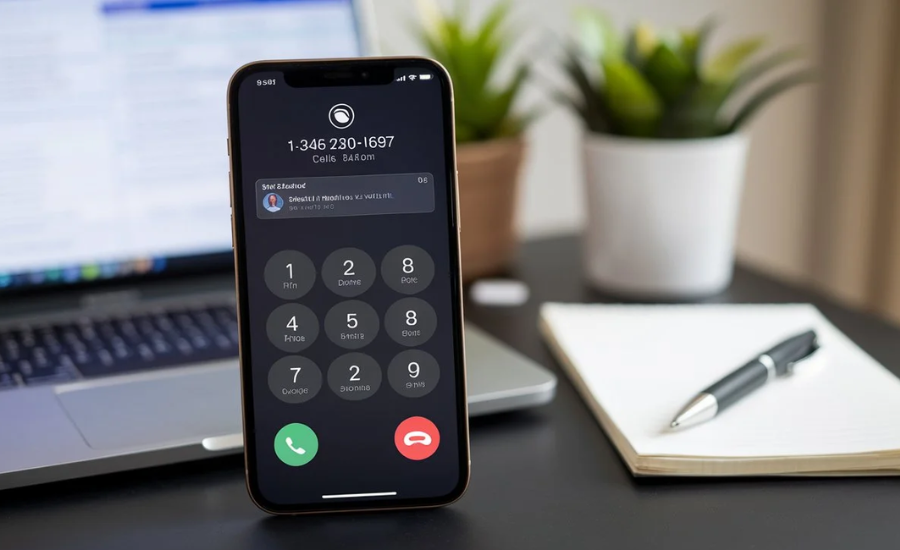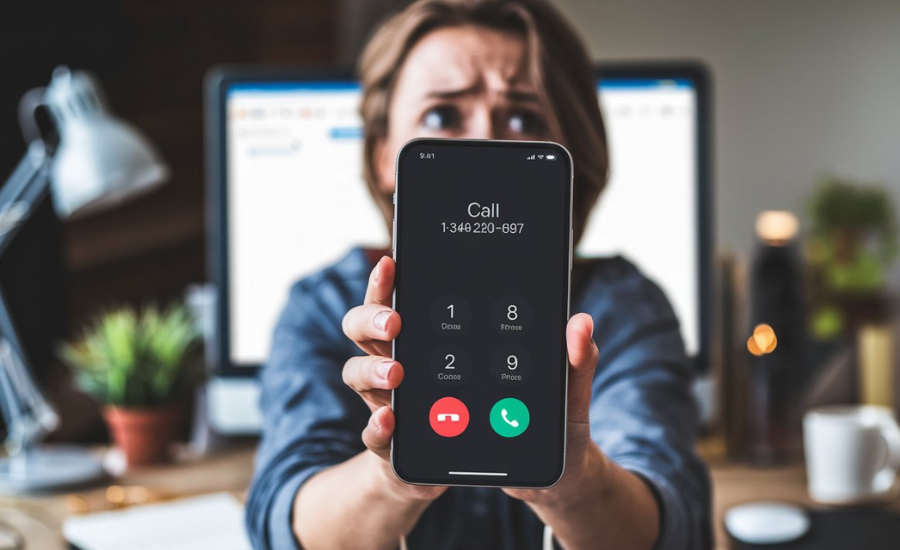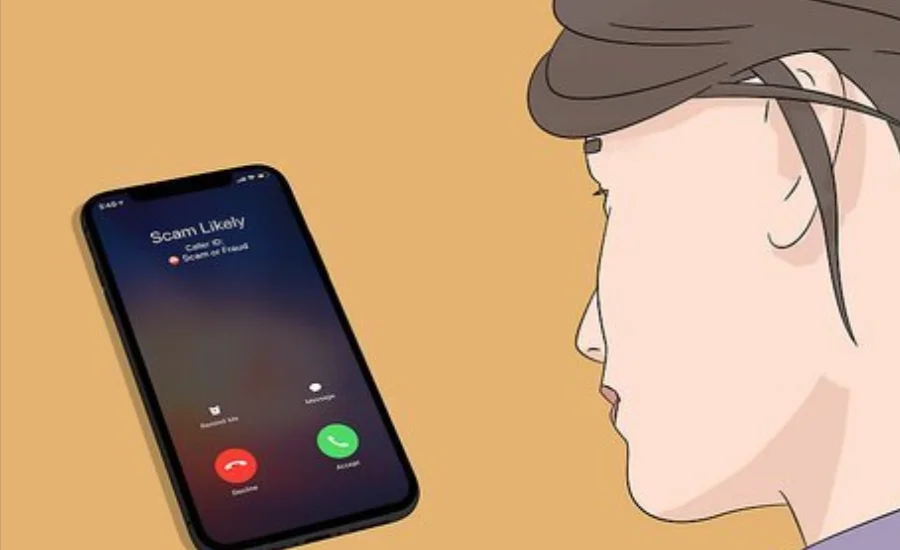
Protect Yourself from Scam Calls: Essential Insights on 1-346-230-1697 and Beyond
In our increasingly digital world, scam calls have emerged as a widespread challenge, putting countless individuals at risk of deception and financial setbacks. If you recently received a call from the number 1-346-230-1697, you might be questioning its legitimacy. This guide is designed to provide you with crucial insights and actionable strategies to shield yourself from fraudulent calls, especially those from suspicious numbers like 1-346-230-1697. Let’s explore effective ways to secure your phone and personal data.
Understanding Scam Calls
Scam calls represent a significant threat in the modern communication landscape, designed to deceive individuals into revealing personal information or participating in unauthorized financial activities. These fraudulent calls can originate from numerous phone numbers, such as 1-346-230-1697. Scammers employ a variety of strategies to manipulate their victims, often impersonating credible entities like well-known organizations, governmental agencies, or tech support personnel. They typically use convincing language, instill a sense of urgency, or make false threats to pressure their targets into compliance.
It is crucial to identify these tactics and recognize the signs of a scam call to protect yourself effectively. By understanding the techniques used by scammers, you can enhance your ability to safeguard your personal information and financial assets from these deceptive practices.
Why You Should Be Cautious About 1-346-230-1697?

The phone number 1-346-230-1697 has been flagged in numerous reports as potentially linked to scam activities. Although this number might occasionally be used for legitimate reasons, it’s important to remain vigilant and skeptical. Scammers frequently employ various phone numbers to disguise their identities and improve their chances of successfully misleading victims. Here are several reasons why 1-346-230-1697 could be tied to fraudulent schemes:
Impersonation Tactics
One of the common strategies used by scammers is impersonation. They often masquerade as representatives of reputable companies or organizations to gain your trust. If you receive a call from 1-346-230-1697 claiming to be from a legitimate entity, take the time to independently verify the caller’s credentials. Do not hesitate to hang up and call the organization directly using a known phone number to confirm the legitimacy of the request.
Creating a Sense of Urgency
Many scam calls employ urgency tactics, aiming to create a false sense of immediacy that pressures you into making hasty decisions. If 1-346-230-1697 contacts you with alarming messages requiring immediate action—such as urgent requests for personal information or financial details—this should raise a red flag. Scammers often exploit fear and anxiety to cloud your judgment, so it’s essential to remain calm and take a step back.
Unsolicited Communication
Receiving unexpected calls from 1-346-230-1697, especially if you have no prior relationship with the organization it claims to represent, is another indicator of a potential scam. Legitimate companies typically do not initiate contact without prior consent or communication. If the call feels unsolicited or intrusive, it’s wise to treat it with suspicion.
Understanding the Structure of Scam Calls
Scam calls, including those originating from numbers like 1-346-230-1697, often exhibit a common set of characteristics that can help you identify them. Typically, the caller will pretend to be a representative from a reputable organization—this could be a well-known company, a bank, or even a government agency. The aim is to establish a false sense of trust and convey an impression of legitimacy.
Use of Fear and Urgency
One of the primary tactics employed by these callers is the use of fear-inducing language or urgent requests. They might claim that there is a serious problem with your account or that immediate action is necessary regarding a financial matter. This approach is designed to provoke anxiety, compelling you to react swiftly without taking the time to assess the situation critically.
Requests for Sensitive Information
Calls of this nature often involve demands for sensitive personal information, including Social Security numbers, bank account details, or passwords. In some cases, the caller may insist on immediate payments or charitable donations. Understanding these tactics—such as impersonation, the instillation of urgency, and the solicitation of personal data—can significantly enhance your awareness and resilience against these deceptive schemes.
How to Recognize a Scam Call?

Identifying a scam call is a crucial first step in safeguarding yourself from potential fraud. Below are several indicators that a call, including one from the number 1-346-230-1697, may be fraudulent:
1. Unknown Caller Identity
If the phone number is unfamiliar to you or if the caller claims to represent a company or agency with which you have no prior interaction, it’s important to exercise caution. Scammers often exploit this unfamiliarity to initiate contact.
2. Requests for Sensitive Information
Be wary if the caller requests sensitive personal information, such as your Social Security number, bank account information, or passwords. Legitimate businesses and organizations typically do not ask for this kind of information over the phone. If you encounter such a request, it’s a strong indicator that the call may not be trustworthy.
3. Use of Threats or High Pressure
Calls that utilize threats, intimidation, or create an overwhelming sense of urgency are often scams. Genuine organizations do not employ these tactics to secure compliance from individuals. If you feel pressured to act quickly, take a step back and reassess the situation.
4. Poor Language Skills
Many scam calls originate from overseas, which can result in poor language skills or incorrect grammar. If you notice the caller using awkward phrasing, heavy accents, or broken English, it might be a sign that you are dealing with a scam.
Additional Tips for Protection
- Verify Caller Information: If you suspect that a call is a scam, hang up and independently verify the caller’s identity by contacting the company or agency directly using a known number.
- Trust Your Instincts: If something feels off about the call, trust your gut. It’s always better to err on the side of caution.
- Report Suspicious Activity: Consider reporting any suspicious calls to relevant authorities, such as the Federal Trade Commission (FTC) or local consumer protection agencies, to help prevent others from being victimized.
By staying vigilant and recognizing these warning signs, you can significantly reduce your risk of falling victim to scam calls. Protecting your personal information and financial security should always be your top priority.
Effective Strategies to Safeguard Against Scam Calls
Protecting yourself from scam calls, including those from numbers like 1-346-230-1697, requires a proactive approach. Here are several practical strategies to help you stay safe:
1. Avoid Engagement
If you suspect that the caller is a scammer, it’s best not to engage in conversation. Simply hang up the call without sharing any personal details. Engaging with the caller can sometimes encourage further attempts to reach you.
2. Verify the Caller’s Identity
Should the caller assert that they represent a legitimate organization, do not hesitate to hang up and independently verify their claims. Use official contact numbers from the organization’s website to confirm whether the call was authentic. This step is essential for ensuring your security.
3. Block Suspicious Numbers
Take advantage of your phone’s built-in call-blocking features or third-party apps to block 1-346-230-1697 and any other numbers that seem suspicious. Blocking these calls can significantly reduce unwanted disturbances.
4. Report Fraudulent Activity
If you encounter scam calls, consider reporting them to relevant authorities such as the Federal Trade Commission (FTC) or your local consumer protection agency. Reporting these incidents helps law enforcement agencies track down and combat fraudulent activities.
5. Utilize Call Screening Applications
You may want to explore call screening or anti-scam applications that can automatically identify and block potential scam calls. These tools can provide an extra layer of protection and save you from dealing with unwanted callers.
6. Exercise Caution with Personal Information
Never disclose personal, financial, or sensitive information over the phone unless you are completely confident about the caller’s legitimacy. Being cautious with your information can help protect you from identity theft and financial fraud.
Additional Considerations for Enhanced Security
- Stay Informed: Keep yourself updated on common scam tactics and evolving strategies used by fraudsters. Knowledge is a powerful tool in avoiding scams.
- Educate Others: Share information about these protective measures with family and friends to help them stay vigilant as well.
By implementing these strategies, you can greatly enhance your defenses against scam calls. Prioritizing your privacy and security is essential in today’s increasingly digital world.
Immediate Actions to Take If You’ve Engaged with a Potential Scam Caller

If you’ve inadvertently shared personal or financial information with a caller from 1-346-230-1697 or a similar number, it’s crucial to act swiftly. Here are the steps you should follow to protect yourself and mitigate any potential damage:
1. Reach Out to Your Financial Institution
If you have disclosed any financial information, such as your bank account or credit card details, immediately contact your bank or credit card provider. Inform them about the situation so they can monitor your accounts for suspicious activities. They may also recommend specific actions, such as freezing your account or issuing new cards to prevent unauthorized transactions.
2. Initiate a Fraud Alert on Your Credit Report
To safeguard your credit profile, consider placing a fraud alert with one of the three major credit bureaus: TransUnion, Equifax, or Experian. A fraud alert makes it more challenging for scammers to open accounts in your name, as creditors will need to verify your identity before granting credit. It’s a proactive step that can significantly enhance your protection.
3. Monitor Your Credit Activity Regularly
Vigilance is key when it comes to protecting your financial health. Regularly review your credit reports for any signs of unauthorized activity or discrepancies. You are entitled to a free credit report from each of the major credit bureaus once a year, allowing you to track any changes or unfamiliar accounts that may have been opened in your name. Additionally, consider subscribing to credit monitoring services for real-time alerts regarding your credit status.
4. Change Passwords and Secure Accounts
If you provided any login credentials or personal information, update your passwords for online banking and other financial accounts immediately. Choose strong, unique passwords and consider enabling two-factor authentication wherever possible to enhance your account security.
5. Document Everything
Keep a detailed record of your communications with the scam caller, including the date and time of the call, the information shared, and any follow-up actions you take. This documentation can be valuable if you need to file a report or seek assistance from law enforcement or credit monitoring services.
6. Report the Incident
Report the scam to the appropriate authorities, such as the Federal Trade Commission (FTC) or your local consumer protection agency. Providing them with information about the scam can help them track and prevent similar incidents in the future.
Key Facts
- Definition:
Scam calls are fraudulent communications aimed at tricking individuals into revealing personal information or making unauthorized financial transactions.
- Common Tactics:
- Impersonation: Scammers often pose as representatives from legitimate organizations, using familiar names to gain trust.
- Urgency: Many scams create a false sense of urgency, pressuring victims to act quickly without thinking critically.
- Threats: Scammers may use intimidation or threats to force compliance.
- Unsolicited Calls: Legitimate companies usually do not initiate contact without prior interaction, making unexpected calls suspicious.
- Recognizing Scam Calls:
Indicators of potential scams include unknown caller identity, requests for sensitive information, high-pressure tactics, and poor language skills.
- Immediate Actions:
If you’ve shared personal information, contact your financial institution, initiate a fraud alert, and monitor your credit activity regularly.
FAQs
Q: What should I do if I receive a call from 1-346-230-1697?
A: If you suspect it’s a scam, do not engage. Hang up and verify the caller’s identity independently.
Q: How can I protect myself from scam calls?
A: Use call-blocking features, avoid sharing personal information, and report suspicious calls to authorities.
Q: What actions should I take if I’ve already shared personal information?
A: Contact your bank, place a fraud alert with credit bureaus, monitor your credit reports, and change passwords for online accounts.
Q: Are there any specific signs that indicate a call might be a scam?
A: Yes, signs include unknown caller identity, requests for sensitive information, threats, and poor language skills.
Q: How can I report a scam call?
A: Report the incident to the Federal Trade Commission (FTC) or your local consumer protection agency.
Related: 713-457-2361
Conclusion
In today’s digital age, being aware of the risks associated with scam calls is vital for protecting your personal and financial information. Calls from numbers like 1-346-230-1697 are often linked to fraudulent activities, employing various tactics such as impersonation, urgency, and intimidation to deceive victims. By understanding these tactics and knowing how to recognize potential scams, individuals can take proactive steps to safeguard themselves. If you have engaged with a scam caller, acting quickly—by notifying your bank, placing a fraud alert, and monitoring your credit—can mitigate potential damage. Remember, vigilance and informed action are your best defenses against the rising tide of scam calls.
Keep connected for the latest updates and alerts: Mumbai Breaking

